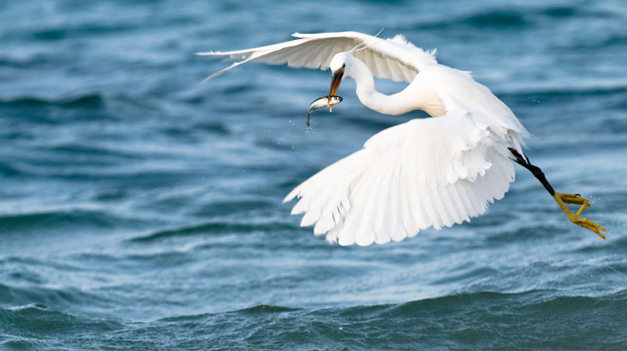
Part 1 of the Marine and Coastal Access bill provides for the creation of a Marine Management Organisation (the MMO) with the primary aim of providing a consistent, coordinated approach to the management of activities at sea. Its creation has been heralded as a recognition of the goal of holistic management; something that has been sought by environmentalists for many a long year. Simply establishing the MMO will not be enough, of course, and its effectiveness will depend on its detailed remit and approach. The first problem is its geographic scope. The MMO’s area is restricted to the territorial waters of England and the UK water beyond the 12 n mile Territorial Sea Limit although its functions are further restricted in Scotland’s offshore area. Consistency and coordination will depend on clear joined up thinking and mutual commitment across the UK administrations.
Obtaining agreement across so many government departments, with little shared policy to unify their approach apart from a commitment to sustainable development, will be a hard task. The appointment of Chris Parry as the Chairman Designate is evidence of the government’s thinking about how the MMO will function. Rear Admiral Chris Parry has a military background and a strong reputation as a strategic forecaster. He has been described as an inspirational leader and can be expected to provide a strong, no nonsense approach to the role of chairman. The fact that he is not an environmentalist indicates that the MMO is not to be viewed as an environmental body despite the fact that Defra is its sponsoring department. This may not be a bad thing. Provided the remit is sufficiently strong with regards environmental protection, a ‘neutral’ chair may prove more influential than an openly green leader. Chris Parry’s last venture as a leader in the civilian world was not a success, however. His appointment as Chief Executive of the Independent Schools Council was short lived and controversial. He resigned from the post after making derogatory remarks about education in the State sector, remarks which did nothing to bring the public and private sector closer together. There will be plenty of opportunities for offending sensitivities in the marine sector and Chris Parry will need to take great care in the way he walks the consensus tightrope.
He will be assisted greatly if he is equipped with strong directions and guidance from the Secretary of State as proposed in clauses 35 & 36 of the bill. The Marine Policy Statement, provided for in Part 3 of the bill, will guide the planning decisions of the MMO. Publication of a draft Marine Policy Statement has been deferred and may not appear before the next General Election. Could this be because government departments cannot agree on its content? The High Level Marine Objectives, published earlier this year, focused on the need for sustainable use but seem to have been worded so as not to offend any sectoral interest; unless the Marine Policy Statement comes out more strongly with its policy guidance, the MMO is going to be at the sway of its members. And this presents another problem. Chris Parry is, to date, the only appointee. It had been expected that a Chief Executive would have been appointed by now so that the process of selecting further Board Members could begin but all is quiet on this front. Possibly the decision to locate the MMO on Tyneside has put potential candidates off. Unless announcements are made soon the MMO may have lost trust before it has even been created.







